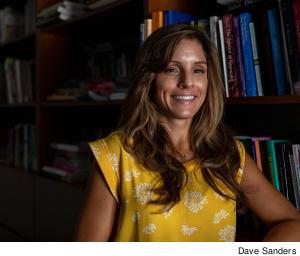Targeting City Hall
While the state is responsible for the majority of CUNY’s operational budget, the university’s two-year colleges are heavily reliant on city funding. That’s why PSC’s political organizing that targets NYC City Council is so important, and it is why PSC officers and activists met with many of the Democratic nominees who are all but assured to be entering – or reentering – city council in 2022.
 |
At the CUNY 101 Breakfast on September 22, the PSC made its political objectives clear: the University needs more funding to meet the needs of its students, the majority of whom come from working-class communities and communities of color that have been acutely impacted by the health crisis and economic downturn caused by the COVID-19 pandemic. Among the nominees who are assumed to enter city council next year who attended the virtual event were Lincoln Restler (Brooklyn), Crystal Hudson (Brooklyn), Shahana Hanif (Brooklyn), Shekar Krishnan (Queens) and Lynn Schulman (Queens). Manhattan Borough President Gale Brewer, will likely rejoin the city council next year (she served in the council before becoming the borough president), was also in attendance.
Heather James, an assistant professor of political science at Borough of Manhattan Community College and an active member of the PSC’s Legislative Committee, told the assembled nominees, “Trust me, we will be coming to you in the FY 2022 budget fight,” noting that while the state is the biggest funder of CUNY, the community colleges depend largely on city funding.
“We were shocked to find that the mayor’s budget proposed $77 million in cuts to CUNY,” she said, adding that the union’s lobbying power in the city council was critical in saving $10 million for CUNY’s Accelerated Study in Associate Programs (ASAP) in this summer’s city budget process, noting, “We rolled back an illogical cut with [the city council’s] help.”
UNION POWER
That’s a demonstration of the power both the PSC and a progressive city council can have, James said, adding that there’s much more work to be done in terms of gaining more city funding. For example, she noted, many of CUNY’s community colleges suffer shortages in mental health services and other advisory services. This, she said, was an enormous disservice to students and created work overloads for PSC members. “Some campuses have just one advisor for every 1,000 students,” James said.
PRESSURING TRUSTEES
PSC President James Davis noted that a major priority for the city council in the coming years should be to put pressure on the CUNY Board of Trustees, where the mayor holds one- third of the appointments. “The board has not done its job adequately,” Davis said, referring to the board’s lack of public advocacy for full funding of CUNY. “We’ve had to do the work to advocate for CUNY. This is another area where the mayor and the council can assert their influence.”

